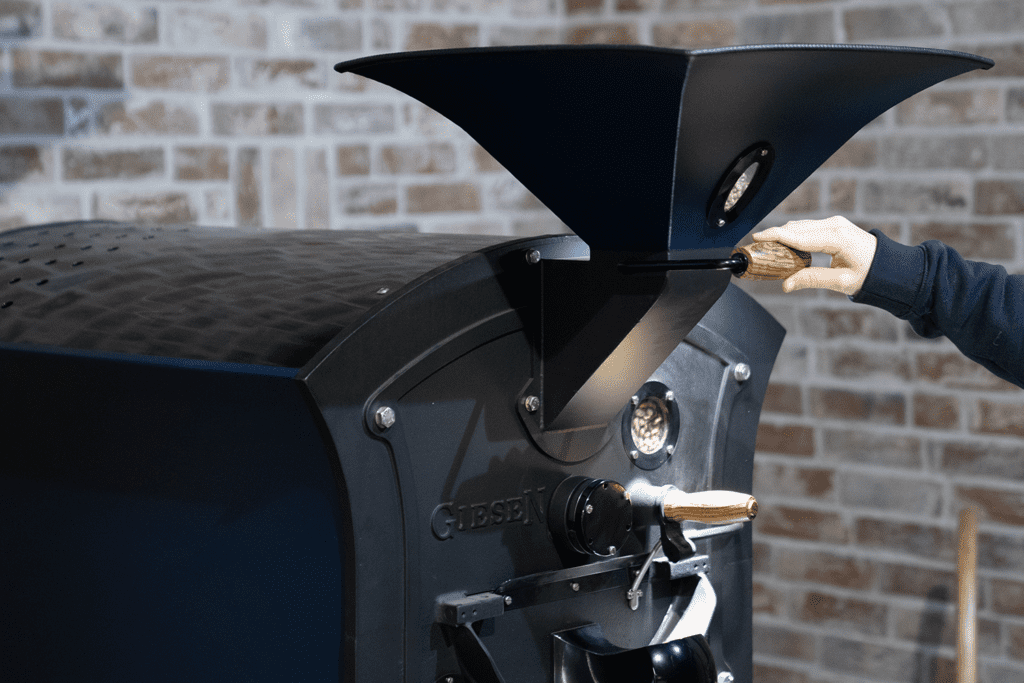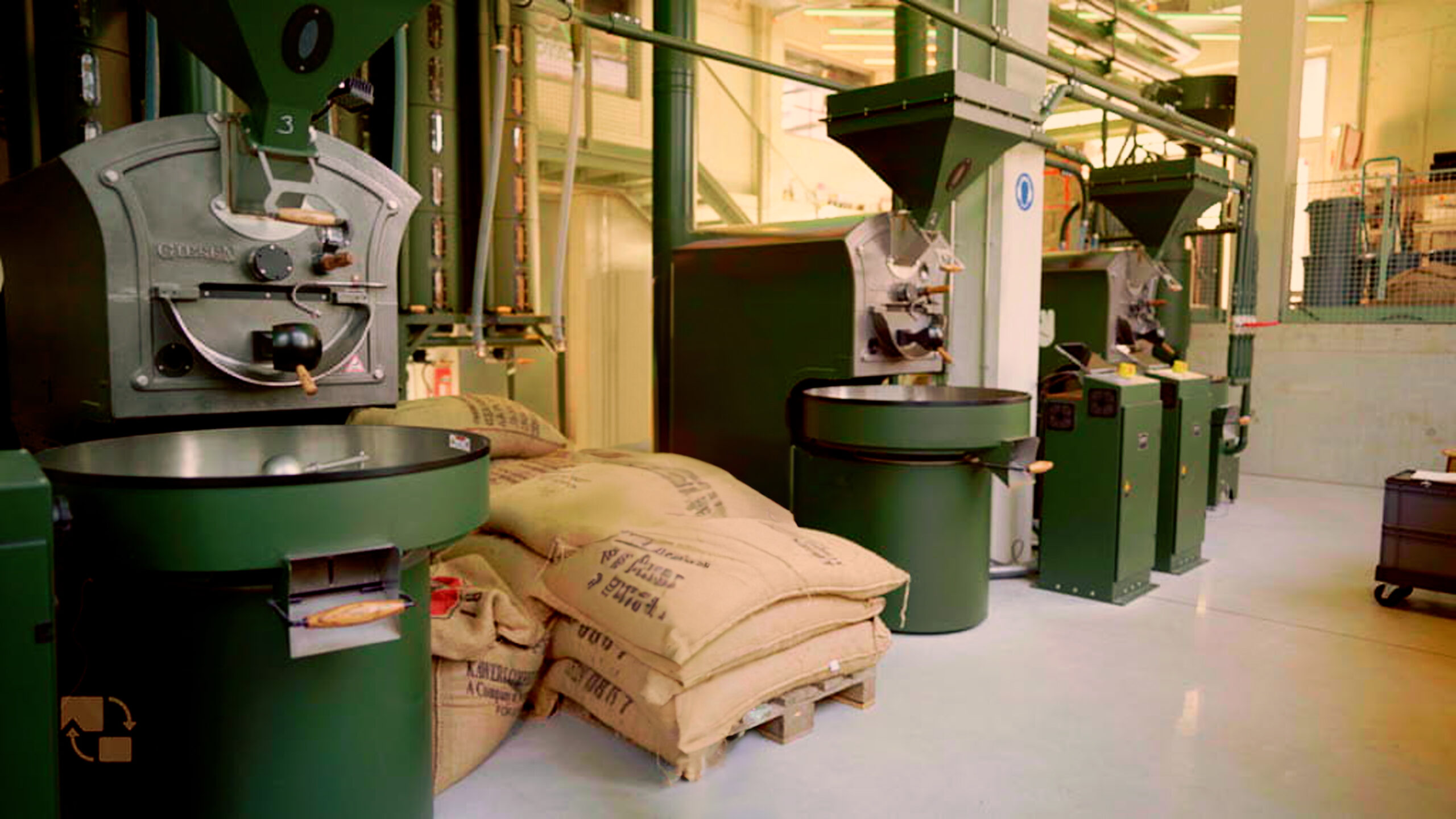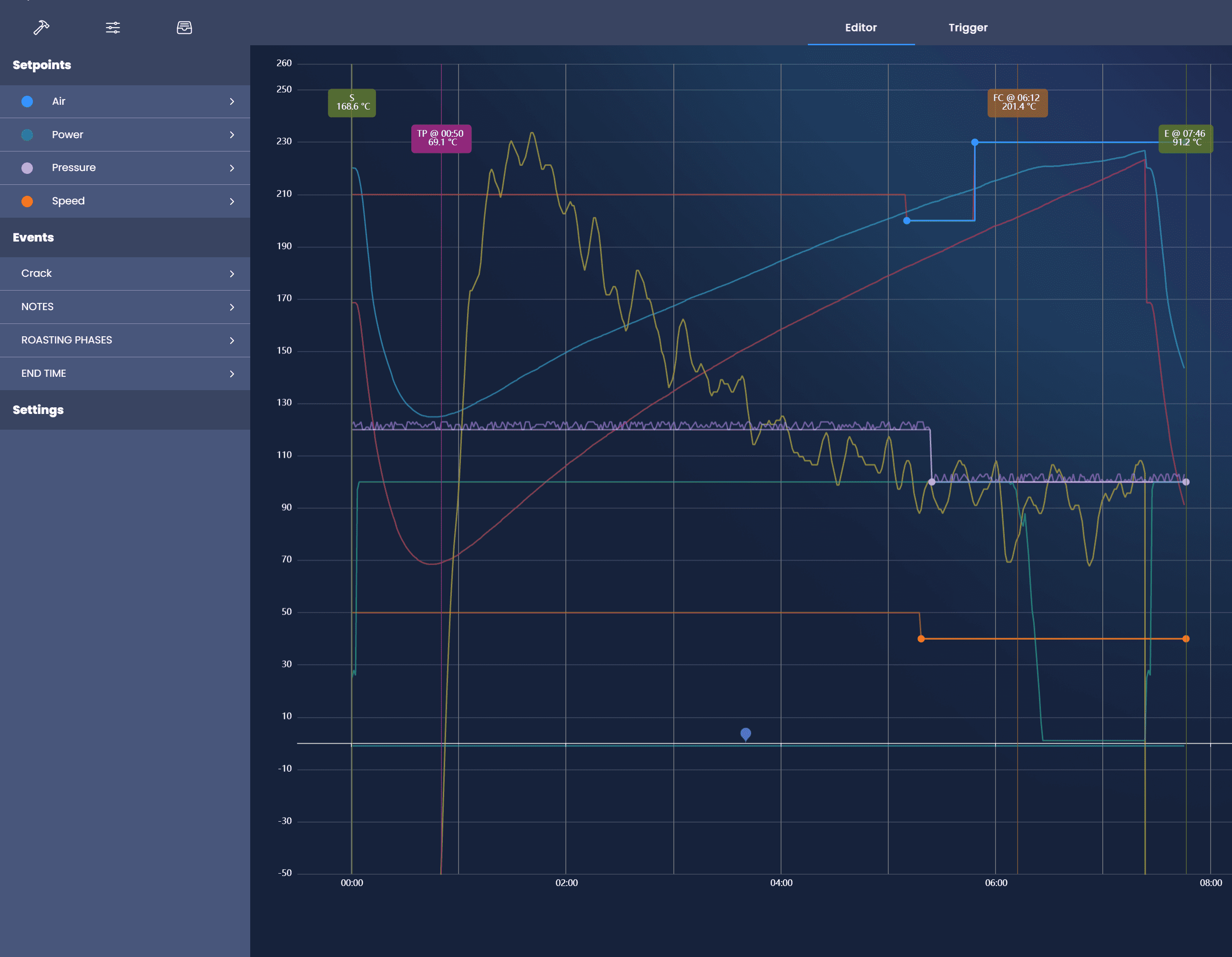The guest on the latest podcast was Emanuellis Ryklys, he’s an author, made his own coffee tool and is the founder of Crooked Nose & Coffee Stories. With years of experience, Emanuellis gets a take on coffee trends and coffee culture. In this podcast, he shares his ideology of coffee and his way to success.
Cisca: Hello emanuelis! Your LinkedIn bio says, coffee enthusiast, product creator, and educator. That makes me very curious, but before we talk about your ambitions, creativity, and vision, I wonder how you got involved with coffee in the first place. Can you tell me and the listeners a little bit more about that?
Emanuellis: ‘I think my love for coffee came from my family because they were always enjoying coffee breaks. Normally when you would drink coffee in our city, it was a huge lottery if you received some good coffee. So my mom and dad loved to prepare coffee at home so that they would be responsible for the quality. However, they were not too deep into coffee. They just bought what they could buy.
Somehow they naturally fell in love with this black drink. And when you see people happy about something, you also become happy about it. I remember the smell that came from the kitchen and the sound of the grounder. Slowly, I started to learn more about coffee and decided to start roasting. My first hundred bags were roasted on just a simple pan from my kitchen. And I still see this as one of the greatest learning experience. Now we have bigger roasting equipment but I still remember how the first moments put a smile on my face.’
Coffee culture
Cisca: ‘Your business is located in Lithuania. How is the coffee culture in your city?’
Emanuellis: ‘I think it’s working and spinning. But when I talk about the coffee culture, I think there is a difference between coffee culture and coffee commerce. Culture should be part of something you learn maybe from the past. You try to change things and have an impact.
Globally what I’m noticing is that we have a huge boom of new cafes and new roasteries. A lot of people are repeating what already has been done. It looks like it doesn’t matter where the picture of a café is taken it all looks the same. And that makes me a bit sad. It’s probably a natural part of the coffee industry because a lot of things still need to be discovered or re-discovered. And a lot of people who are working in the industry are young. That’s also why I started to make different coffee products and let people learn about coffee.
I hope it doesn’t sound like a pretentious comment. With all the things we do here, we try not to be pretentious, but we try to push the limit at least for ourselves. We let people see alternative ways of enjoying coffee. Some years ago we opened a slow coffee bar. We were only serving coffee and nothing else and we didn’t use an espresso machine. That was really to show people that it’s easy to enjoy coffee with just some simple tools. We had lots of fun and following but after the pandemic, we decided to take a break from this, and moved on to coffee education. We don’t want our visitors to be coffee geeks, we want them to be coffee lovers. And we try to avoid technical things.’
Cisca: ‘What worries me the most is how can we make sure that our kids can still enjoy coffee when they get older. We are not only responsible for roasting coffee but also for origin. Let’s pay the farmers good prices, let’s educate them. We have to make sure that they are also involved because that’s better for the whole industry. As you said, the information that is shared is just copied.’
My own way
Emanuellis: ‘Cisca tell me, when did you move from the W6 to the W30?’
Cisca: I bought my W30 in March 2017. Then I had to find a space where we could roast. Because with my store, I am based in the city center of Delft. After six months I found the perfect location, so in October 2017 the W30 was installed. But then I did not know how to perform the same roast profiles I had on the W6, to the W30. Because there was no information. That took me months. In June 2018, I had the first similar batch. So I had a lot of sleepless nights from the W30.’
Emanuellis: ‘If you take coffee personally, you should also act personally. When we decided to open a slow coffee bar without an espresso machine and let people enjoy coffee in alternative ways. Without sugar, milk, or cakes. The biggest skeptics we received came not from the people, but the industry. But when I opened the café, I wanted to believe in myself. I didn’t want to tell the story about how it’s nice to mix milk in your coffee. I want to tell the stories about how it’s nice to find some good black coffees. And our customers really appreciated it. A lot of people were enjoying pure coffee for the first time. So I think it sounds very naïve but you should think about what you want to do with coffee. If you want to follow the commercial way, that’s up to you and I would respect it. But maybe you shouldn’t call it coffee culture. There is nothing wrong with imitating, but I always like it when people try to take a risk and walk their own path.’
Cisca: ‘When I bought the W30, it was a big investment. I felt like if I’m going to buy the W30 and take that risk, because it’s a lot of money, I want to do it my own way. I want to make sure that I run my business the way I want. I’m not going to explain myself to customers anymore, I am not going to explain myself to fellow roasters or collogues or whatever. I’m going to do it my way and if people don’t understand it, it’s a pity, but it’s their perspective and I cannot change that. And when I decided that, my business was more focused than ever. It was more stable and growing much more because I took that decision.’
The Bro Coffee Maker
Cisca: ‘You created your own coffee tool. The Bro Coffee Maker. Besides that you are also an author. I wondered, what inspires you to create things like that?’
Emanuellis: ‘I wanted to use local materials like blackwood and linen which are very common in our culture. At that time, there was no trend with recycling materials. But I wasn’t happy with the paper filters that you needed to trough away afterwords. So I wanted something re-usable. And after testing different linen, I find out it was as a very good filter.’
‘I was always interested in the education part. So after doing a lot of coffee tastings for different people, I somehow decided that it’s about that I try to write a book. I wanted to write something for the people who are not in the industry. So I tried to write a book for my mum. Now it’s written 4 years ago, and at the moment it’s translated into the English version.’
Cisca: ‘I like the idea you wrote it for your mother. And I agree that there are a lot of books that are interesting for us in the industry but if a customer asks for a book, there are none.’
Cisca: ‘What are your plans for the future with your business?’
Emanuellis: ‘Our coffee school is still very fresh. So we are working on that and we do a lot of private events. I think we keep on doing this and that will probably take a couple of years.’




